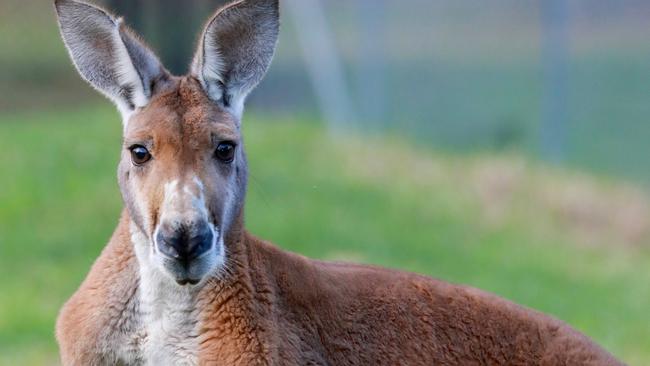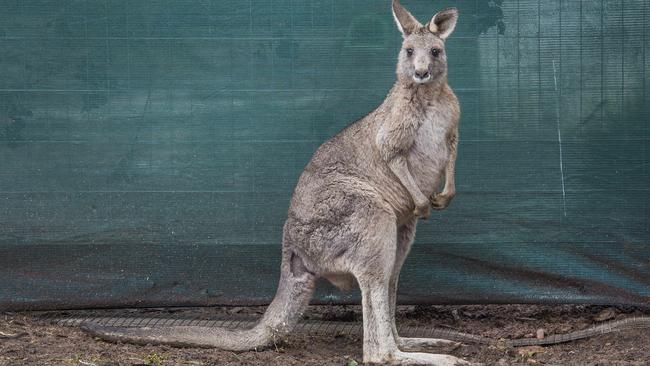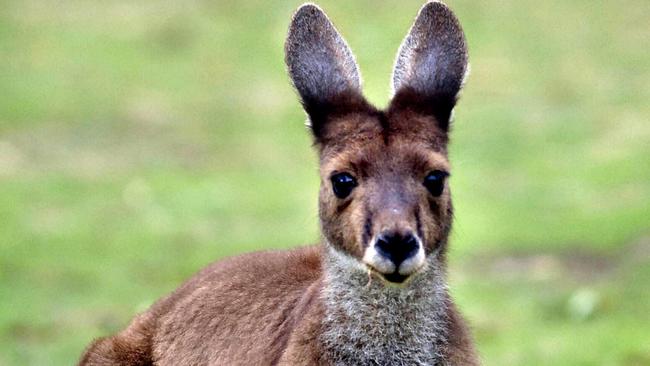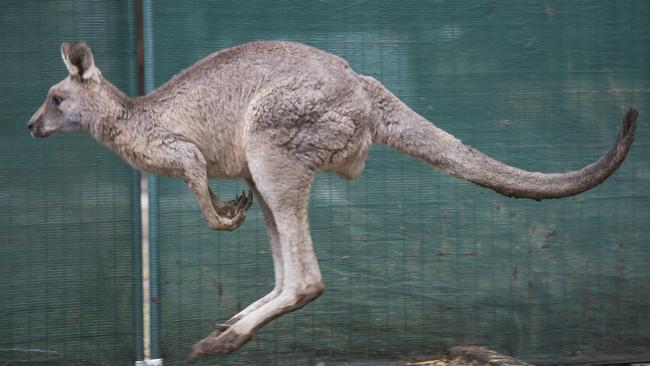Animal groups call for rethink on killing of kangaroos for pet food
Animal welfare groups have called for a rethink on the state’s program to kill kangaroos for pet food, claiming we need to be “sympathetic to our indigenous wildlife”.

VIC News
Don't miss out on the headlines from VIC News. Followed categories will be added to My News.
Victoria’s animal welfare groups have called on the state government to rethink its policy of killing kangaroos for pet food.
“It’s a sad day for Australia when we kill our native wildlife to feed our dogs,’’ Wildlife Victoria chief executive Megan Davidson said.
The group says the number of roos killed has increased by 170 per cent since the state’s pet food trial began in 2014.
Wildlife Victoria, Animals Australia and RSPCA have called for changes and more transparency to the cull.

Farmers say the cull is needed because the roos eat crops, damage fences and are a road danger.
The state government last month announced a permanent Kangaroo Harvesting Program in which roos will be shot and turned into pet food after a five-year trial.
Accredited shooters will gather the carcasses to be processed for dog food by licensed businesses.
“We shouldn’t be killing healthy native animals for no good reason,’’ Dr Davidson said.
‘’We should be more sympathetic to our indigenous wildlife.’’
“Terming the killing “harvesting” conceals the awful reality for these iconic Australian survivors. In truth, we harvest crops, but animals we kill.’’
About 10 per cent of the state’s 1.4 million roos will be shot dead each year under the program.

Animals Australia chief executive Glenys Oogjes said Victorians would be “mortified that iconic kangaroos would become fair game for the commercial meat and skins industry’’.
“Oversight is minimal and inadequate, with many kangaroos injured and dependent joeys of shot females either brutally killed or left to die after escaping.’’
Most of the kangaroos are shot at night, making monitoring of the scheme difficult, she said.
“On animal welfare grounds alone, this commercialisation of our native kangaroos is vehemently opposed.’’
Leonard Vallance, livestock president of the Victorian Farmers Federation, said the permanent harvesting program would improve kangaroo management, cut red tape for farmers, and bring Victoria in line with other states.
“It’s positive to see that the program removes the administrative burden of kangaroo management on farmers. Farmers will no longer need to apply for a permit or prove kangaroo damage has occurred on their property to access the new kangaroo pet food program,” said Mr Vallance.
“The kangaroo population in Victoria has exploded in recent years to well beyond natural levels. The abnormally large kangaroo population is having a serious impact on agricultural businesses, native habitats, regional road safety, and the welfare of the kangaroos themselves.’’

The Environment Department briefed the welfare groups of the plan’s final details only after it had been announced.
RSPCA Victoria’s animal welfare police manager Mhairi Roberts said that decisions over control of kangaroos should be driven by the animals’ welfare or their impact on the environment rather than solely commercial reasons.
“RSPCA Victoria believes all animals should live a humane life and die a humane death. Monitoring and compliance of shooting accuracy and supply chain transparency are required to ensure humane outcomes for animals shot.’’
MORE NEWS:
RETIRED RACEHORSES SET TO STAR IN REALITY TV SERIES
INSIDE MELBOURNE’S MOST EXCLUSIVE MANSION
THE FLEMINGTON ATM SPITTING OUT FREE CASH
A government spokeswoman said kangaroos can have a detrimental effect on farmers, producers and Victoria’s economy by eating crops, ruining property such as fences and compromising safety on Victorian roads.”
“We’re making sure Victorian kangaroo populations remain sustainable, with strict quotas in each region to prevent the over-harvesting of animals.”
Animals can also be shot under the Authority to Control Wildlife scheme which allows for killing animals deemed to be damaging crops or property, or are a risk to human or are harming the environment.

